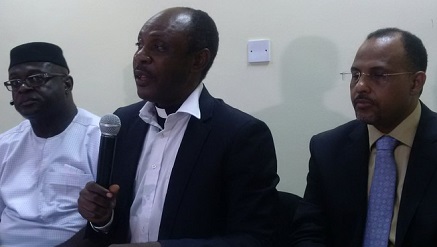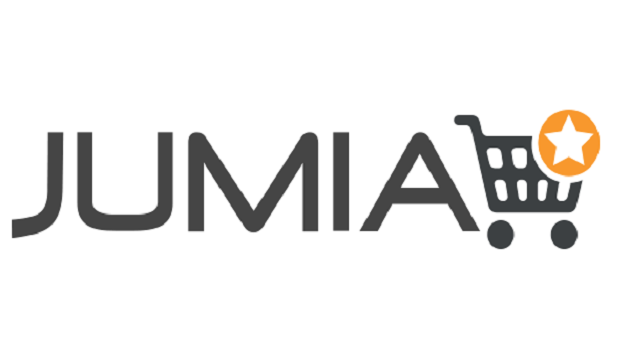E-Business
NiRA Celebrates Decade of .ng Domain Name Management

Nigeria internet Registration Association (NiRA), the leading Country Code Top Level domain name registry in West Africa, has scheduled a number of activities to mark its tenth year anniversary.
Speaking during a press conference on Tuesday, Chinma Onyekwere, chairman, Board of Trustees of NiRA said that the Association is proud to celebrate a decade of managing Nigeria’s critical national resource and identity flagship on the internet, the .ng name string.
He said that NiRA has kept faith as the registry for .ng Internet Domain Names and maintains the database of names registered in the .ng country code Top Level Domain.
NiRA is a self-regulating body and managers of the .ng national resource, the country code Top Level Domain (ccTLD) name space in the public interest of Nigeria and global internet communities.
He listed activities for the celebration and means to building awareness and appreciation of .ng includes, the presence of NiRA delegates at the Africa DNS Forum/ICANN meeting holding in Morocco from 4th to 10th March, 2016; the NiRA Fair and Exhibition of the DNS industry to be mounted by NiRA accredited registrars, resellers, web hosting companies and software developers, on 12th March, 2016.
He added that there will be a Youth empowerment and wealth creation program on the 19th March, 2016; conferment of .ng Ambassadors; launch of .ng Scouts program; the .ng Social Media activities and a climax with the .ng 10th Anniversary Gala and Award night on the 2nd of April, 2016.
“At NiRA, we are passionate about local content development and we believe that great ideas begin with a simple inspiration and thereafter become stories that entertain, educate and capture the imagination of the audience. With our passion in mind, we launch the NiRA .ng selfie and animation competitions to create compelling local contents that inspire. We encourage Nigerians to take advantage of the opportunities offered by these competitions”.
The Chairman who said that the DNS industry is a revenue generator with abundant business opportunities in the .ng domain name industry, urged Nigerians to join in the noble act of promoting our businesses, our culture, our heritage and our economy online, by promoting .ng.
Earlier in a presentation, Reverend Sunday Folayan, NiRA’s president said that NiRA @10 is a milestone worthy of celebration.
He said that NiRA currently boost of 60,000 domain names registered in the country compared to about 2,000 domains it inherited during formation.
He said, however, there are 59,847 domains in the .ng domain of which 25% are reserved for obvious reasons.
“Today, we have 56 accredited Registrars who do the registration while NiRA runs the registry. 79% of the registrars are Nigerians with others from the UK, US, South Africa, etc., on domains by level, 63% representing 4,400 of the registered domains are on second level; 77% representing 10,000 of them are on third level, while others are on the fourth level”.
He added that the most domains are on third level which negates the notion that it was expensive to obtain .ng domain name, among other statistics he reeled out to buttress NiRA’s achievements in the past decade.
History Of NiRA
The Nigeria Internet Registration Association (NiRA) was founded on March 23, 2005 as a stakeholder-led organisation, charged with the management of the Nigeria’s country code Top Level Domain Name (ccTLD), dot ng.
The transfer of the appropriate management of this important National Resource was coordinated by the National Information Technology Development Agency (NITDA) on behalf of the Federal government of Nigeria.
Stakeholders within Nigeria’s Internet community participated in its formation. It was registered as an Incorporated Trustee on February 9, 2007.
NIRA’s formation brought to an end the long years of controversy in the country, over the management of this critical national resource, following the intervention of the then President, Chief Olusegun Obasanjo.
The re-delegation of the .ng ccTLD came nearly 12 years after the country code was hosted first in Italy, and later by Mr Randy Bush, an American. While Mr Bush was the technical contact for the ccTLD, Mrs. Ibukun Odusote served as the administrative contact.
NIRA’s Constitution was adopted by Stakeholders, at a meeting held on March 28, 2006. A Board of Trustees (BoT) was elected among the stakeholders with Dr. Isaac Odeyemi as the pioneer Chairman, shortly after the adoption of the Constitution.
By May 1, 2007, the first Executive Board of NIRA was elected with Engr. Ndukwe Kalu of blessed memory leading a 10-man Board.
Today, NiRA has Chinma Onyekwere, chairman, Board of Trustees and Reverend Sunday Folayan as the President.
E-Business
GenAI Adoption Among African workers Outpace Global Peers

Africa’s workforce is embracing artificial intelligence (AI) at a faster pace than global peers, but pressure is mounting for organisations to ramp up digital skills development as generative AI (GenAI) begins reshaping roles across industries.

This is according to PwC’s Global Workforce Hopes and Fears Survey 2025, which shows a continent ready for AI-enabled transformation, but facing a narrowing window to prepare, through skills development initiatives.
The survey, covering nearly 50 000 workers worldwide and 1 753 across South Africa, Algeria, Kenya, Morocco and Nigeria, finds that African employees are already integrating AI into daily operations.
Sixty-four percent of respondents in Africa used AI tools in the past year, compared to 54% globally, and the sentiment is overwhelmingly positive. While only 17% report using GenAI every day, confidence in its benefits is high: 76% believe GenAI improves work quality, and 72% expect AI-driven productivity gains within three years.
In SA, executives are even more bullish, as 91% say AI has already lifted both productivity and work quality — a signal that leadership is pushing harder toward AI-enabled ways of working, notes the survey.
However, this optimism is coupled with rising concern about future readiness. Only 35% of African workers believe their skills will still be relevant three years from now. With GenAI expected to affect nearly half of all job roles, PwC warns that the continent’s workforce risks falling behind unless organisations accelerate large-scale reskilling.
Despite the pressures, employees are not standing still. PwC notes that African workers outperform their global peers in proactive learning, recording 15% higher participation in skills-building and receiving 6% more support from managers. This indicates that both workers and immediate supervisors recognise the pace of AI adoption and are pushing to adapt.
PwC Africa people and organisation leader, Dr Dayalan Govender, says the moment calls for decisive leadership. Organisations, he argues, must integrate AI into workforce strategies, accelerate digital adoption, and expand upskilling programmes at scale.
“Africa’s workforce is optimistic and ready for change, but leaders must accelerate digital adoption and invest in future-ready skills to convert this optimism into sustainable growth,” he says.
Beyond the technology shift, the survey captures a workforce hungry for growth but constrained by financial pressure. Many employees are preparing to make career moves: 45% plan to request a raise, and another 45% aim for a promotion in the next year. Yet household financial stability remains strained, with only a third of respondents reporting any money left over for savings.
Still, Africa’s workplaces continue to show strong foundations of trust and purpose — elements PwC believes will be critical in navigating GenAI disruption. More than 55% of workers trust management, and two-thirds say their work feels meaningful, both above global averages.
With AI adoption rising and employees motivated to reinvent their careers, PwC warns that the coming years will determine whether Africa’s early optimism translates into long-term competitiveness as GenAI transforms the world of work.
The report calls for embedding AI into workforce strategies to bridge the gap between optimism and practical adoption, scaling upskilling initiatives to prepare for GenAI disruption, and fostering trust and psychological safety to retain talent and drive innovation.
“For employers, these findings are a stark reminder that they can and should do more to help workers understand, adopt, and embrace AI’s transformative power.
“Employers may need to pay special attention to entry-level workers, nearly a third of whom say they’re worried to a large or very large extent about AI’s impact on their future, even as they’re also curious (47%) and optimistic (38%) about its long-term societal effects,” notes the report.
E-Business
Nigeria Records Highest Weekly Cyberattacks in Africa — Report

Nigerian organisations are facing the highest volume of weekly cyberattacks in Africa, according to the newly released African Perspectives on Cyber Security Report 2025 by Check Point Software Technologies Ltd., a global leader in cybersecurity solutions.

The report revealed that Nigerian firms experience an average of 4,200 attacks per week, significantly higher than the continental average of 3,153 and 60 per cent above the global average of 1,963 attacks per organisation.
The findings highlight a sharp rise in attacks across Africa, driven largely by artificial intelligence-enabled threats.
Kingsley Oseghale, country manager for West Africa at Check Point, said attackers are increasingly using AI to automate phishing, impersonation, and cloud exploitation.
“AI has become part of the attack surface,” Oseghale said. “Attackers are using it to automate phishing and identity theft at scale. The only effective response is prevention-first security that combines visibility, governance, and AI protection.”
The report noted that cybercriminals are exploiting exposed identities and misconfigured systems to target critical sectors, including finance, energy, telecoms, and government.
Identity-led intrusions, AI-generated phishing campaigns, and multi-vector ransomware are on the rise.
Across the continent, Check Point identified key trends in different markets. Nigeria is experiencing business email compromise and cloud exploitation; South Africa faces rising ransomware, smishing, and botnet infections such as Vo1d and XorDDoS; Kenya has seen ransomware targeting critical energy infrastructure; and Morocco has experienced coordinated government and education-sector disruptions via DDoS and website defacement attacks.
The report highlights five major shifts shaping Africa’s cyber risk in 2025.
Traditional ransomware has evolved into data-leak extortion, AI-generated deception is widespread, and identity has emerged as the new security perimeter.
Weak cybersecurity, the report warned, can now affect international market access under regulations such as the EU’s NIS2 Directive, making digital resilience an economic necessity.
The study urged African businesses and governments to adopt prevention-first security strategies, including continuous risk assessment, regulatory readiness, and public-private collaboration.
Oseghale emphasised that, as AI reshapes operations, cybersecurity must shift from reaction to prediction.
“The real challenge is not adopting new technology but securing the trust that underpins it,” he said.
E-Business
Jumia’s Data Shows Nigerians Turning to Digital Retail to Navigate Inflation Pressures

As Black Friday 2025 unfolds across Nigeria, new insights from Jumia’s Q3 2025 financial results reveal that more Nigerians are relying on digital retail to navigate inflation and rising living costs.

The data points to a more deliberate, value-driven shopper, one using online platforms to stretch budgets, compare options quickly, and extract more value from each purchase.
Jumia reported a 30 percent year-on-year increase in physical goods orders, while Gross Merchandise Value for physical goods rose by 43 percent.
This stronger GMV growth highlights a clear behavioural shift: consumers are assembling higher-value baskets by combining essentials with premium or long-term household items. Online retail is serving as a tool for strategic planning, not just convenience.
According to Temidayo Ojo, Chief Executive Officer of Jumia Nigeria, Black Friday now plays a more critical economic role. “Households are using digital retail to defend purchasing power. They plan their lists, compare prices instantly, and rely on the reliability and convenience that e-commerce offers,” he said.
This year’s Black Friday trends show growing demand in categories that directly support daily living. Household essentials and FMCG products are seeing significant uptake as families stock up during price drops. Home and kitchen equipment is also experiencing stronger demand as shoppers prioritise practical, durable tools. Affordable fashion and beauty products are gaining momentum as discounts make them more accessible.
Consumer behaviour in the lead-up to the sales period further reinforces this shift. Jumia recorded a notable increase in “Add to Wishlist” and “Add to Cart” activity, signalling more planning and fewer impulse purchases. The gap between GMV and order growth indicates that customers are optimising baskets using bundles, vouchers, and promo combinations, behaviours uniquely suited to digital platforms.
With inflation intensifying the need for smarter buying, trust markers on Jumia, such as verified sellers, official brand stores, ratings, and clear return policies, are becoming more central to decision-making. Authenticity and durability now outweigh the appeal of the lowest price.
Jumia’s logistics footprint is making these benefits available nationwide. Its 30,000 sqm Isolo fulfilment centre, 480 pickup stations, and 62 logistics partners ensure that customers in secondary and peri-urban cities enjoy the same deals as those in major hubs, reducing travel burdens and adding financial value.
Overall, Jumia’s Q3 data and Black Friday trends show that Nigerians are turning to digital retail as a practical, strategic response to inflation, using e-commerce to manage budgets, preserve purchasing power, and make more informed buying decisions.

 General News2 days ago
General News2 days agoManufacturers Block More Ransomware, But Data Theft Surges – Sophos Report

 Telecom2 days ago
Telecom2 days agoMTN Nigeria Launches Y’ello Data Gifting Campaign as Digital Connectivity Shapes Festive Celebrations

 News2 days ago
News2 days agoPAPSS Cowry to Benefit Manufacturers, SMEs

 E-Financial2 days ago
E-Financial2 days agoCBN’s New Cash Policy: A Welcome Liberalisation or a Risky Retreat?

 E-Financial2 days ago
E-Financial2 days agoAccess Bank’s Digital Innovation Earns Top Financial Inclusion Award

 Telecom2 days ago
Telecom2 days agoAfrica Must Build Its Own Cybersecurity Intelligence, Says Tizel CEO At AfriTech 5.0

 Telecom2 days ago
Telecom2 days agoMTN Partners with SMEDAN to Drive Digital Growth and Job Creation Nationwide

 News2 days ago
News2 days agoAfrilearn Expands Drive to Make Quality Education Attainable for African Children















